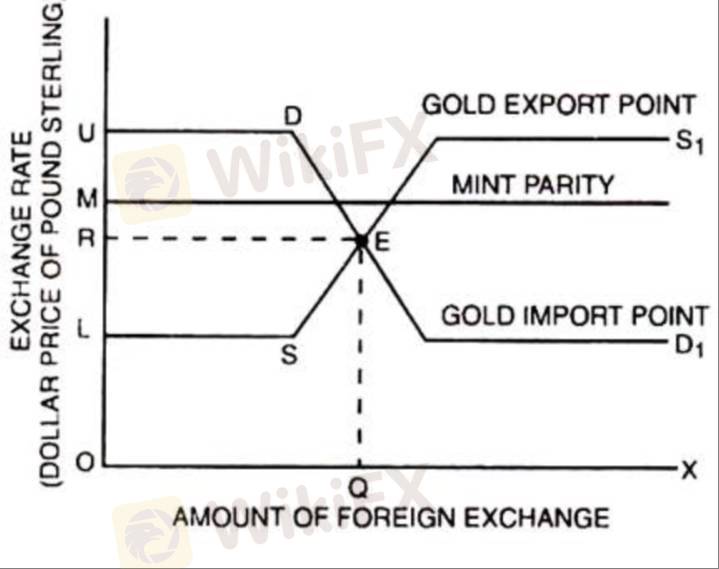
2025-02-13 05:46
In der IndustrieExchange rate determination: theories and models
#Firstdealofthenewyearastylz
1. Purchasing Power Parity (PPP)
- Theory: Exchange rates adjust to equalize the price of a basket of goods between two countries.
- Implication: Long-term exchange rates are determined by relative inflation rates.
2. Interest Rate Parity (IRP)
- Theory: Exchange rate differences reflect interest rate disparities between countries.
- Implication: Investors will adjust their investments across borders, causing the exchange rate to reflect interest rate differences.
3. Monetary Model
- Theory: Exchange rates are influenced by money supply and demand in different countries.
- Implication: A country with higher inflation or money supply growth will see its currency depreciate.
4. Asset Market Model
- Theory: Exchange rates are determined by demand for financial assets denominated in different currencies.
- Implication: Expectations about economic conditions and interest rates affect exchange rates.
5. Balance of Payments Model
- Theory: Exchange rates are influenced by the trade balance and capital flows between countries.
- **Implication**: A trade surplus leads to currency appreciation as foreign buyers need the local currency.
6. Mundell-Fleming Model
- Theory: Combines fiscal and monetary policies with capital mobility to explain exchange rate movements in an open economy.
- Implication: Exchange rates are affected by government policies and international capital flows.
7. Government Intervention
- Theory: Governments may intervene to stabilize or influence exchange rates.
- Implication: In managed floating systems, exchange rates can be influenced by both market forces and government actions.
This version highlights the core ideas behind each model in a more concise format. Let me know if you'd like further adjustments!
Gefällt 0

Mywoman
Händler
Aktueller Inhalt
In der Industrie
Event-A comment a day,Keep rewards worthy up to$27
In der Industrie
Nigeria Event Giveaway-Win₦5000 Mobilephone Credit
In der Industrie
Nigeria Event Giveaway-Win ₦2500 MobilePhoneCredit
In der Industrie
South Africa Event-Come&Win 240ZAR Phone Credit
In der Industrie
Nigeria Event-Discuss Forex&Win2500NGN PhoneCredit
In der Industrie
[Nigeria Event]Discuss&win 2500 Naira Phone Credit
Kategorie

Plattform

Ausstellung

IB

Rekrutierung

EA

In der Industrie

Markt

Index
Exchange rate determination: theories and models
 Hong Kong | 2025-02-13 05:46
Hong Kong | 2025-02-13 05:46#Firstdealofthenewyearastylz
1. Purchasing Power Parity (PPP)
- Theory: Exchange rates adjust to equalize the price of a basket of goods between two countries.
- Implication: Long-term exchange rates are determined by relative inflation rates.
2. Interest Rate Parity (IRP)
- Theory: Exchange rate differences reflect interest rate disparities between countries.
- Implication: Investors will adjust their investments across borders, causing the exchange rate to reflect interest rate differences.
3. Monetary Model
- Theory: Exchange rates are influenced by money supply and demand in different countries.
- Implication: A country with higher inflation or money supply growth will see its currency depreciate.
4. Asset Market Model
- Theory: Exchange rates are determined by demand for financial assets denominated in different currencies.
- Implication: Expectations about economic conditions and interest rates affect exchange rates.
5. Balance of Payments Model
- Theory: Exchange rates are influenced by the trade balance and capital flows between countries.
- **Implication**: A trade surplus leads to currency appreciation as foreign buyers need the local currency.
6. Mundell-Fleming Model
- Theory: Combines fiscal and monetary policies with capital mobility to explain exchange rate movements in an open economy.
- Implication: Exchange rates are affected by government policies and international capital flows.
7. Government Intervention
- Theory: Governments may intervene to stabilize or influence exchange rates.
- Implication: In managed floating systems, exchange rates can be influenced by both market forces and government actions.
This version highlights the core ideas behind each model in a more concise format. Let me know if you'd like further adjustments!
Gefällt 0
Ich möchte auch kommentieren
Einreichen
0Kommentare

Es gibt noch keinen Kommentar. Mach den ersten

Einreichen
Es gibt noch keinen Kommentar. Mach den ersten